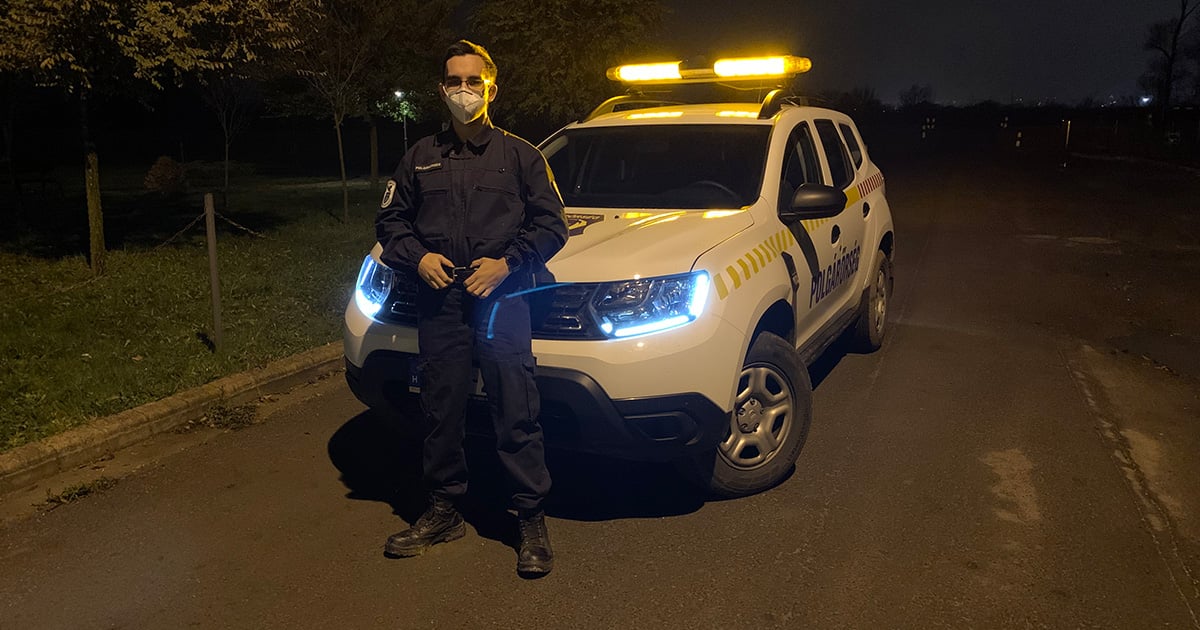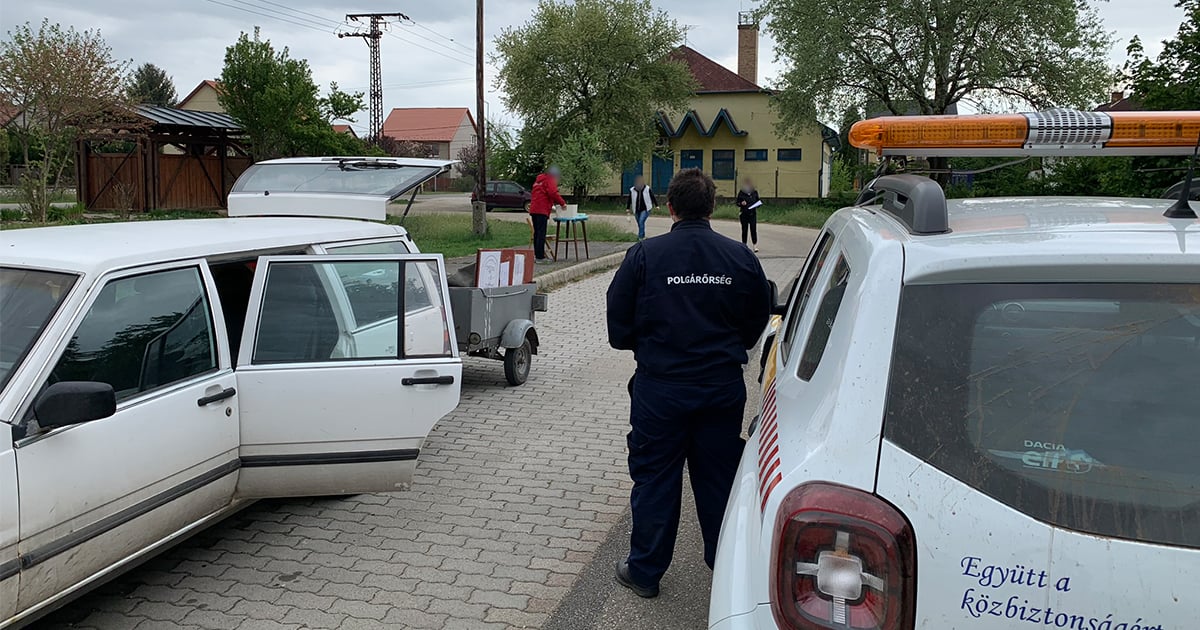Staying put in an office for eight hours a day is just too monotonous for 23-year-old John Plósz.
Born and raised in Felsőzsolca, Hungary, John studied IT for six years in Miskolc and then went to work as a programmer. However, once he actually started working in the computer programming field, John realized that the career path wasn’t a good fit for his personality.

It just so happened that one of John’s friends worked for the government’s Auxiliary Police, an all-volunteer force that supports the police force in patrolling Hungary’s streets. From his first patrol, John was hooked. “You get the car, the uniform, a bit of training and you are good to go,” he says.
As a member of the Hungarian Auxiliary Police, John picks up his patrol car each night and then connects to a dispatcher who may give him an assignment. The most common type of job that dispatch has for John is to help with rescues.
“The rescuing of missing people happens daily,” he says. “There are two orphanages in our city, and one has a number of disabled children in it who often go missing.”
A few months ago, 12 and 13-year-old girls from one of the orphanages were playing outside, when they wandered away from supervisors and got lost. John was dispatched to find them. In all, there were 12 rescuers looking for the girls.
In about 10 minutes, John helped the other first responders download the Zello app, and quickly showed them how to use it. As the rescuers searched for the missing girls, they used the app to coordinate their locations.
“Zello has a lot of features that we want that aren’t on our other EDR system," he says. "Zello has a more intuitive user interface and is much easier to manage."
John tells me that the app is particularly great for technology-averse people. “With a few clicks I can connect people who are technology illiterate. They don’t have to do anything. It’s indescribable for them.”
Luckily, three hours after the rescue operation of missing girls began, the searchers found them in a rural area by a lake. The girls were freezing cold and hungry. Fortunately, they would later recover.
But it’s not just planned rescue operations like this one that the Auxiliary Police participate in. When John is not doing a particular job assigned by dispatch, he patrols the streets to help enforce stay-at-home orders that are in effect during the pandemic.
While he’s out patrolling the streets, John will often come across criminal activity or accidents or even fires. Members of the Auxiliary Police Force don’t have the right to move a suspect from the field, so John will often contact the regular police officers, or, depending on the need, an ambulance or the fire department.

Once, a few years ago, John was out patrolling and saw a fire truck speeding through the streets without the siren on. He followed the truck to the home of the family of one of his high school classmates. The house was ablaze and there were four people inside.
During the incident, John got onto the fire truck and helped with one of the hoses.
“We managed to rescue the children from the house,” he said. “It stuck with me. We saved multiple lives that day. Everyone got out.”
As of December, 2020, more than 200 first-responders in the Hungarian government now use Zello. This includes ambulance teams, firefighters, police and auxiliary police all across the country.
Since John knows how useful Zello is, he’s trying to spread the word to other Hungarian first responders.
“It’s a godsend, to be honest,” he said.

